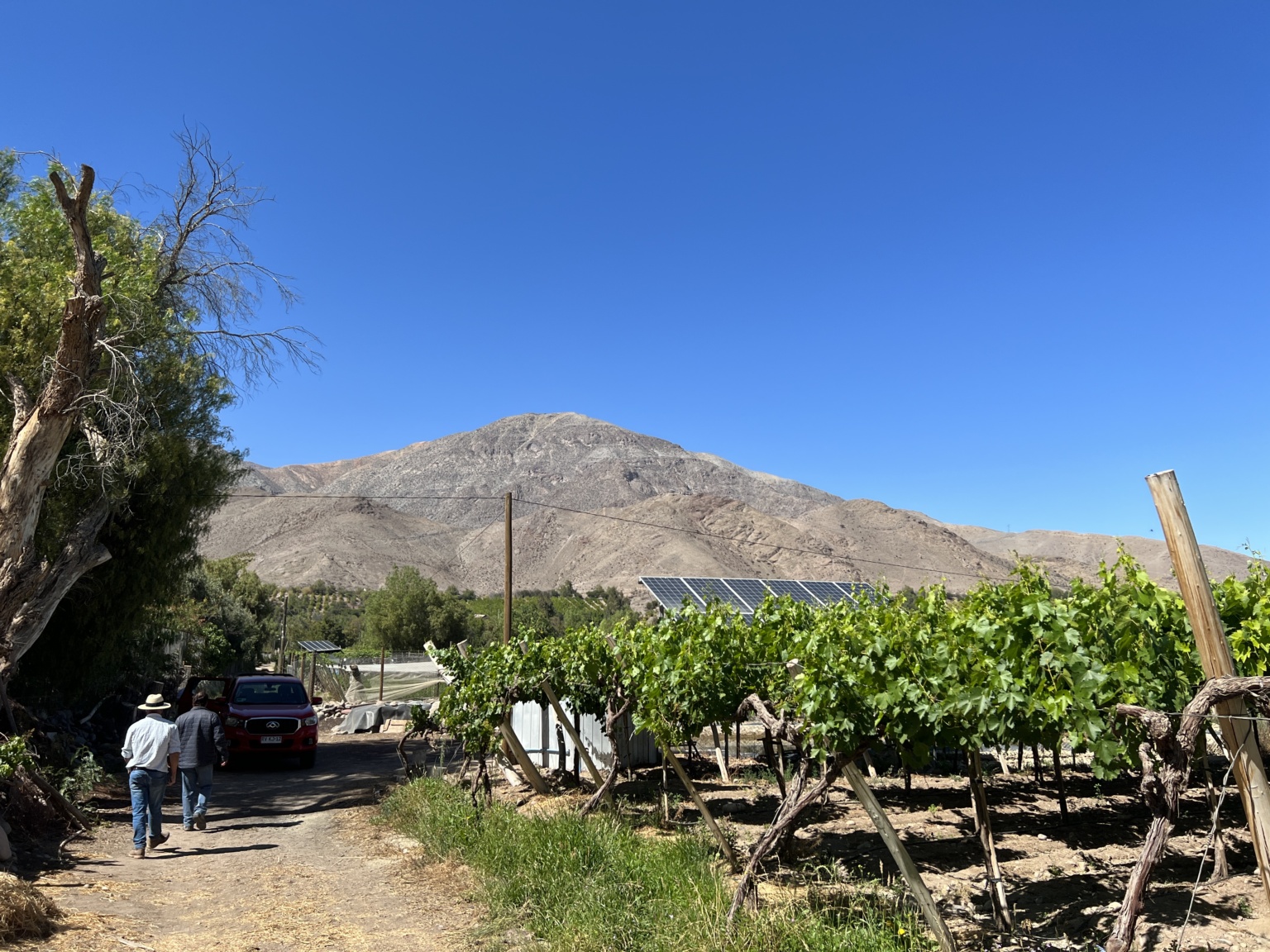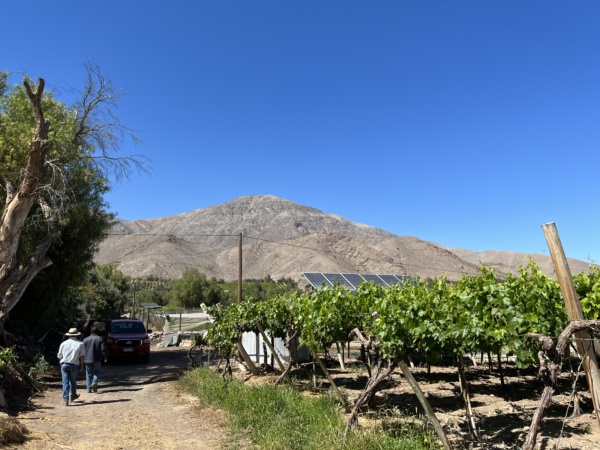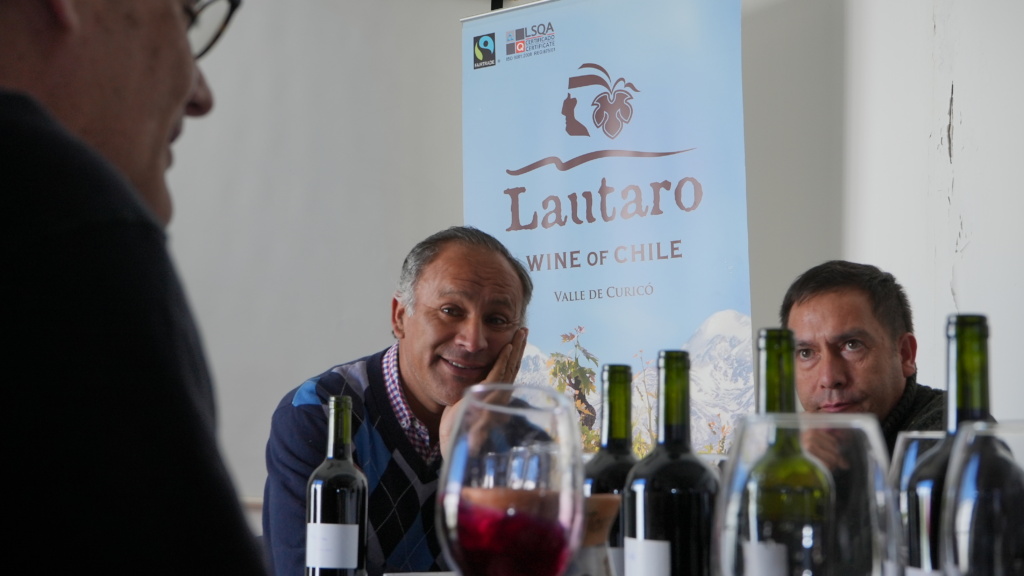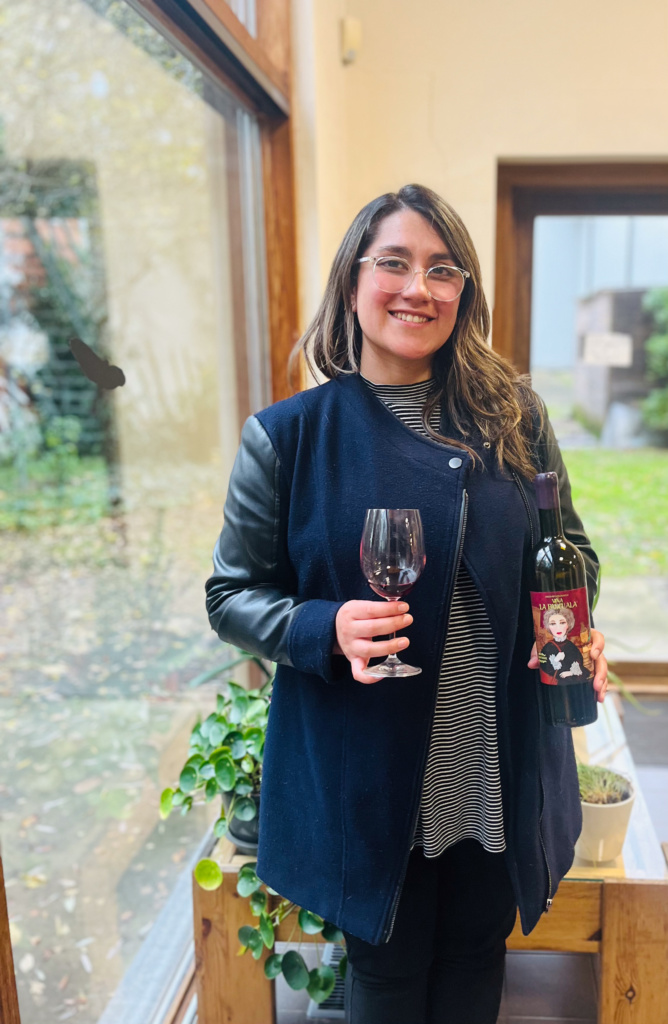
Chilean wine market in troubled waters
Over the years, Chile has become a renowned wine country. Its mild climate and fertile soil provide unique growing opportunities for exceptional grape varieties such as Carmenère. Currently the Chilean wine market encounters environmental and economic challenges. Fair trade principles offer an answer.
Over the years, Chile has become a renowned wine country. Its mild climate and fertile soil provide unique growing opportunities for exceptional grape varieties such as Carmenère. Currently the Chilean wine market encounters environmental and economic challenges. Fair trade principles offer an answer.
The direct link with the people on the ground is what makes Oxfam one of a kind. Oxfam’s wine buyer Wim Melis visited partners Vinos Lautaro, Red Del Vino and Capel in November 2023. During his visit, he observed the effects of climate change, the switch to organic farming, and brand new projects such as Red Del Vino’s gender committee.
Climate change palpable
Dry spells interspersed with pouring rain. That’s how 2023 looked like in Belgium as well as in Chile. After scorching months, the farmers of Vinos Lautaro were surprised by fierce floods in June. Depending on the location in relation to local watercourses, the damage ranged from unpleasant to disastrous. The good news? Several fields have already been converted to organic farming, so the vegetation has retained the soil. Fortunately, the fertile soil has not washed away. Organic food is healthier, natural, and more climate resilient. Therefore, we aim to have 100% organic and fair products by 2030.
In addition, Vinos Lautaro and Capel are investing in more efficient watering. Previously, growers worked solely with river irrigation. In this, rivers are drained and flow through the fields, watering everything. Recently, more and more members are shifting towards drip irrigation that only waters the vines. Solar panels and a pump control the irrigation system.

Troubled market
Not only the climate faces violent change, it’s also the case for Chile’s wine market. On the one hand, exports are declining. On the other hand, it is becoming increasingly expensive to buy vineyards. Whereas the big players can boast economies of scale, this is not the case for small-scale winemakers. And this is where Oxfam makes a difference. By working on a cooperative model, grape growers are sure of a stable demand, and members are paid monthly in instalments throughout the year. The Fairtrade minimum price also guarantees an interesting price for the grapes. Especially in turbulent times with low market prices, it offers tremendous reassurance to fall back on a partnership of many years.

Strengthening local communities
We choose to work with Chilean partners to fight structural inequality. It means a difference for local communities. That’s why we don’t always work with neighbouring partners but always by short food supply chain.
Despite the challenges facing the Chilean wine market, partners are working on exciting initiatives. Red Del Vino, for instance, has set up a gender committee. They engage on craftsmanship but also on female leadership, self-esteem, educating about intra-family violence, etc. This type of forum attracts many young people. Something new is right around the corner.

Want to give these Chilean wine partners more leverage?
Buy their wine through our webshop and support their projects directly.